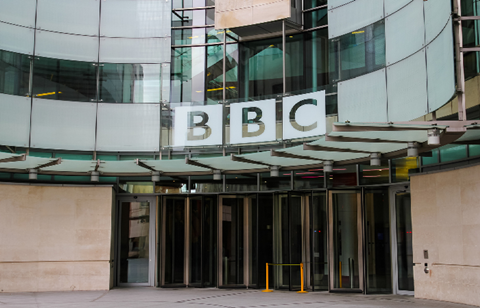
The British Broadcasting Corporation (BBC) has reduced its mean gender pay gap for fixed hourly pay from 10.7% to 8.4% over the course of the last year.
The updated gender pay gap figures, which have been published in alignment with the organisation’s review on workplace culture and systems around the progression of women at the BBC, also show that the median gender pay gap for fixed hourly pay has decreased from 9.3% to 7.6%. The organisation has committed to close its gender pay gap by 2020.
The BBC believes that 7.1% of its remaining gender pay gap is driven by structural issues, based on having fewer women employed in senior leadership roles, and more women than men working in the organisation’s lowest pay quartile.
The BBC attributes its gender pay gap reduction to date on measures such as addressing specific pay issues, introducing a simpler job framework and re-positioning employees within their pay ranges. A quarter of the gender pay gap decrease is due to BBC Studios and BBC Worldwide becoming a single commercial organisation.
The gender pay gap figures further reveal that 43.3% of the organisation’s leadership roles are held by women, an increase from 42.1% last year. It aims to increase this to 50% by 2020.
Alongside its updated gender pay gap statistics, the BBC has also published the results of a review it launched earlier this year to investigate organisational culture and the progression of women within the business. The review was led by Donalda MacKinnon, director at BBC Scotland, and more than 5,000 comments and ideas were received after a consultation with staff.
The review proposes that the organisation should do more around flexible working requests to support male and female employees with work-life balance, assist staff returning from maternity leave or extended leave with coaching and ensure managers are fully equipped to cope with this process, and provide a mentoring scheme for all employees to support women and men throughout their careers.
The BBC also proposed to address its recruitment processes to create more opportunities for development, and to continue looking at mixed gender panels and shortlists. The organisation will also develop high potential programmes for women looking to progress into leadership roles and increase training and support for managers, so that senior leaders can act as culture role models for the organisation.
The BBC has set numerous diversity targets it wishes to achieve by 2020. These include having 50% of women across all staff, 50% of women on screen, on-air and in lead roles across all genres from drama to news, 15% black, Asian and ethnic minorities across all staff, on-air and in lead roles across all genres, 8% of disabled people off-air, on-screen and on-air, including lead roles, and 8% of lesbian, gay, bisexual and transgender staff off-air and featured in on-screen portrayal, including lead roles.
Tony Hall, director general at the BBC, said: “The BBC must do everything it can to ensure that everyone working for it can fulfil their potential. [This] report will help us achieve that. Closing the gender pay gap is a priority for the BBC. We must lead the way. [These] figures show we are making good progress, but we are not there yet and that is why we will keep pressing to deliver change.”











